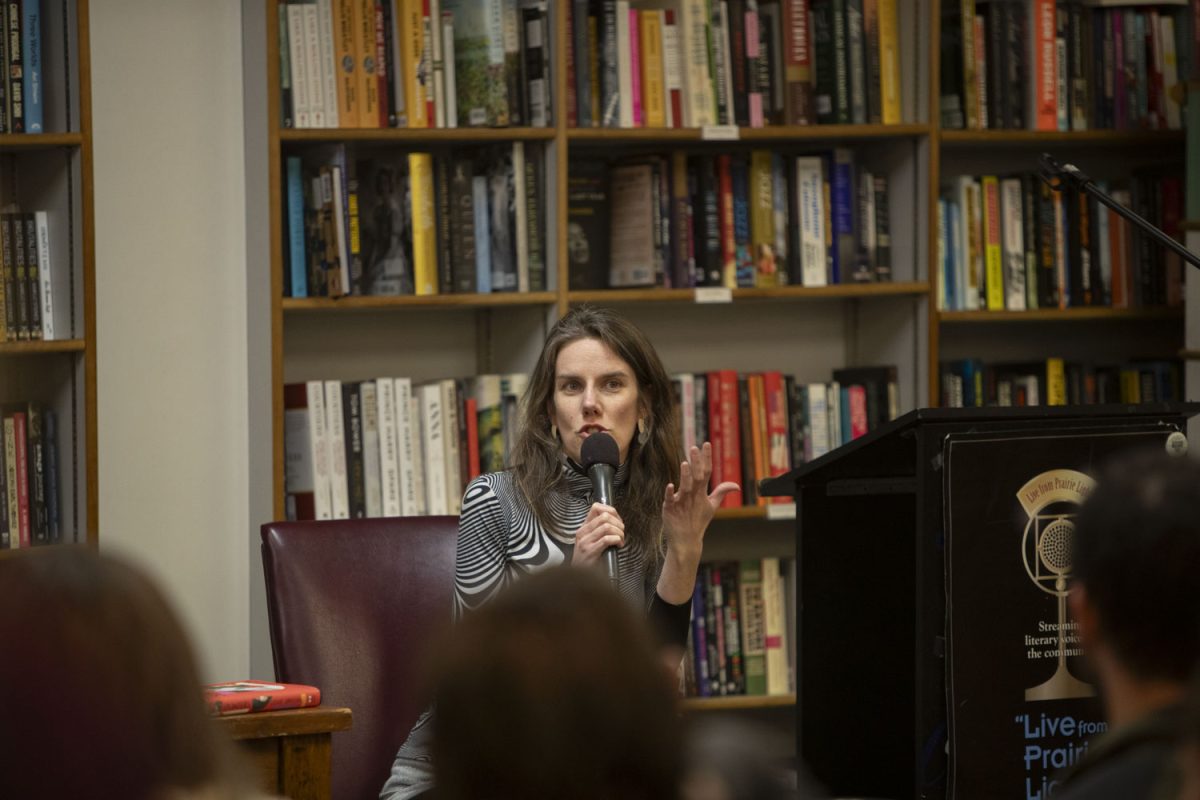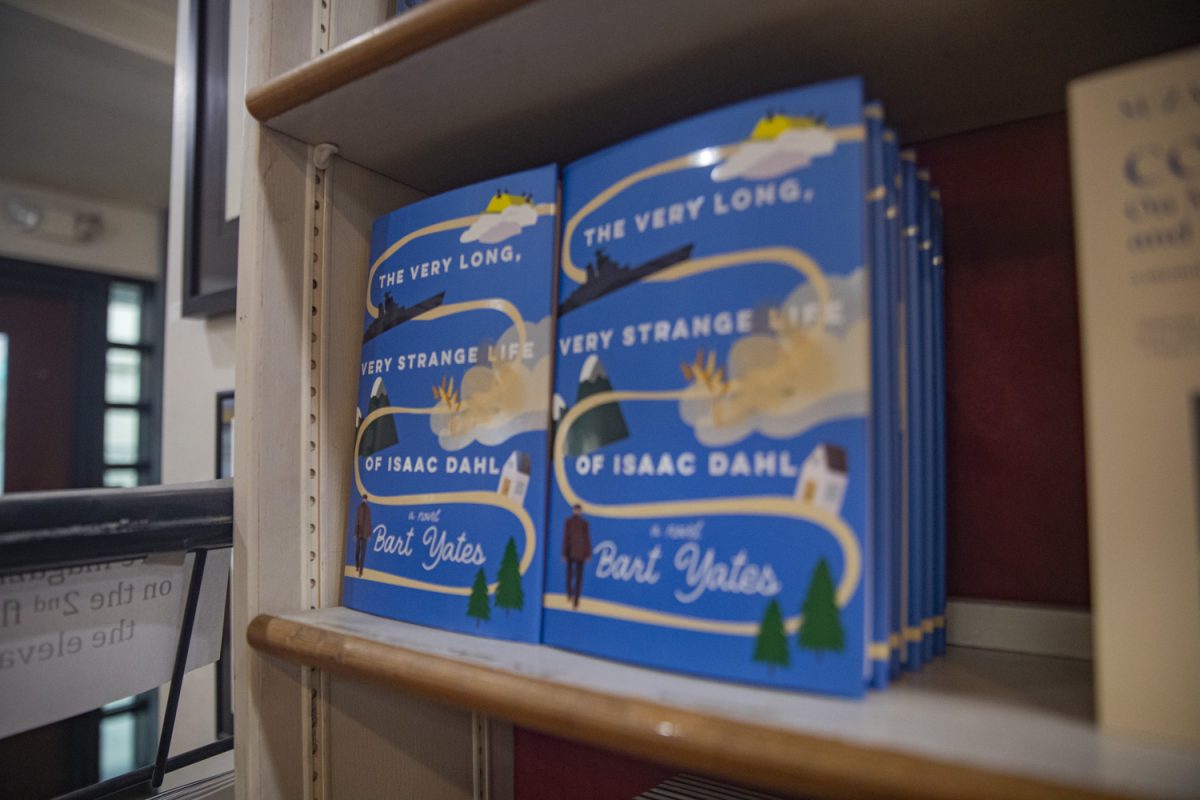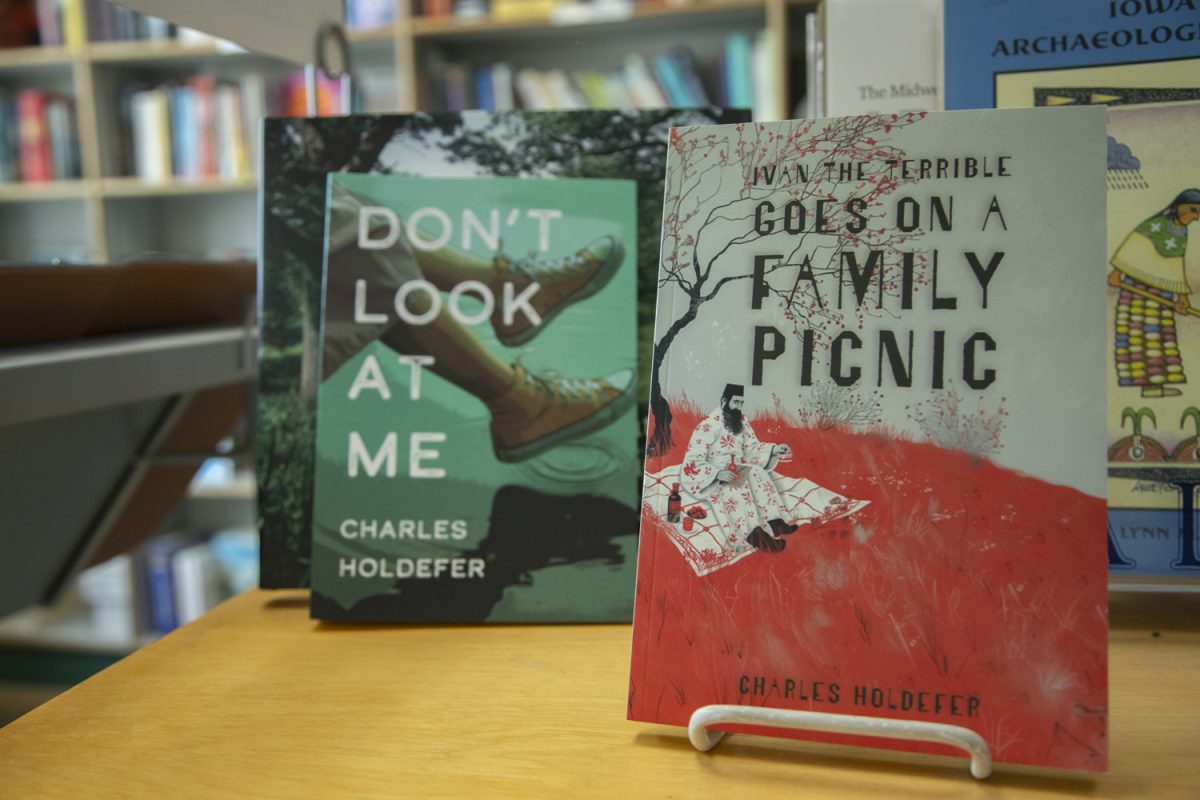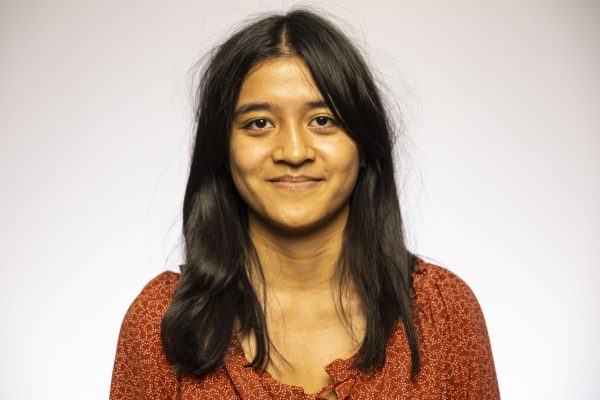Leslie Jamison is a New York Times best-selling essayist and novelist. Before the release of her latest novel, “Splinters,” one of the most anticipated books of 2024 according to TIME Magazine, Oprah Daily, and Vogue among others, she wrote two essay collections: “The Empathy Exams” and “Make it Scream, Make it Burn.” Jamison also wrote a previous memoir, “The Recovering.”
Known for her prose, Jamison’s “Splinters” is her first memoir, detailing the harrowing — yet beautiful — realities of womanhood and motherhood.
She earned her Ph.D. in English literature from Yale University and received her Master of Fine Arts in fiction from the Iowa Writers’ Workshop. Jamison also holds a degree from Harvard University and currently teaches at Columbia’s M.F.A program, directing its nonfiction concentration.
Her work has been published in The New York Times, Oxford American, and Harper’s Magazine. She currently lives in Brooklyn, New York.
Jamison held a reading of “Splinters” at Prairie Lights Bookstore in conversation with “Martyr!” author Kaveh Akbar on Wednesday.
The Daily Iowan: What was the process like writing “Splinters”?
Jamison: Early on, the book’s shape, form, and rhythm announced itself to me. These sharp, whittled shards of prose — splinters of text broken off the whole block of lived experience — and the messy process of rebuilding a life after divorce; I wanted every page to feel white-hot with feeling, desire, and curiosity. I wrote these fragments whenever I could — During nap time, on the subway to work, late at night, first thing in the morning, over the first sips of coffee, and before my daughter woke.
What or who had the biggest impact on “Splinters” and why?
In a beautiful essay called “Fires,” the great Iowa legend Raymond Carver describes two kinds of influence: Literary and daily. The influence of our heroes and the influence of necessity — our children, our jobs, our commutes. In the spirit of both kinds of influence, I’d point to Elizabeth Hardwick’s “Sleepless nights” as the biggest literary influence — an oblique account of divorce and selfhood, a dark fairy godmother text to “Splinters” — and my daughter as my single greatest influence. The book is about the first few years of her life, but she also shaped my deep faith in ordinary life as a site of profundity and wonder.
How did writing “Splinters” influence the graduate course you’re currently teaching at Columbia University?
“The Self” is a lecture course focused on the craft of constructing a self on the page, and it was written to bring together many of the ideas that I’d been wrestling with while I was writing “Splinters.” For that reason, it felt right that a recent New York Times profile about my career began in the classroom, during a lecture called “The Haunted Self.”
In “The Self” this semester, we’ve been talking about the shame that can attach to writing from personal experience and the rigorous work of turning this personal experience into art. We think about the constructed self as multiple and simultaneous, hungry and changing, restless and tender, built from scenes and fragments, breakfast preferences, half-smoked cigarettes, and curt words papering over unspoken vulnerabilities. We talk about writing relationships, illness, grief, pleasure, and joy. We discuss using personal archives — emails, photographs, text chains, scribbled diaries, cell phone videos — in the archeological work required to build the self as a complicated and surprising character on the page.
Sometimes writing personal narratives gets knocked as self-centered navel-gazing. Still, I feel deeply grateful for the personal writing other writers have offered the world, and I believe in the idea that being interested in yourself deepens your capacity to be interested in the lives of others.
What keeps you writing?
Part of what I love about being a writer is that it lets me be interested in everything. Because I also write literary reportage and fiction in addition to writing personal narratives, I get to write about a wide range of subjects from past life memories to ultramarathons, imposter syndrome, and “choose your own adventure” novels … Right now I’m working on a magazine article about gaslighting, a book about daydreaming, and a novel that begins with the Greek myth of the minotaur (I’m telling the story of his mother).
You were accepted into the Iowa Writers’ Workshop, Yale University, and are currently teaching at the Master of Fine Arts program at Columbia University. What is the secret to your success?
I don’t sleep much — an honest answer. But I’ve had such tremendous support from my family, from my teachers, from my communities … and I’m a bit of a workaholic. I love what I do, and I love a to-do list, the latter largely due to my days working at the one and only DeLuxe Bakery, here in town, where I showed up to work each day with a production list waiting. Those bakery days inspired me to be humble and methodical, two underrated modes that serve my writing life quite well. Almost every useful lesson I’ve ever learned, I learned right here in Iowa City.









